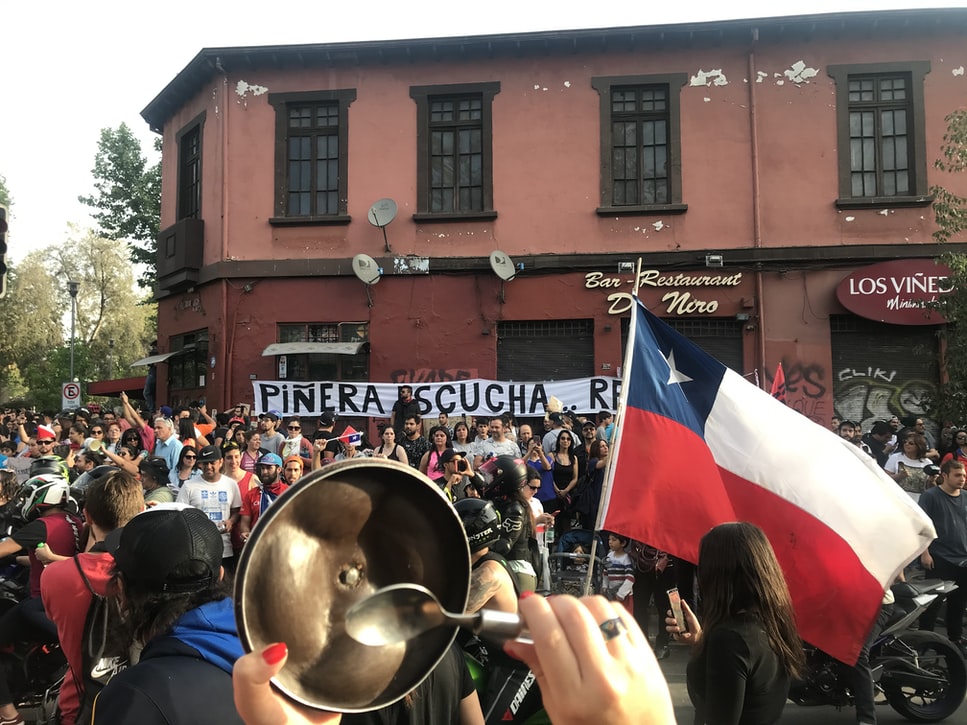Chile is just days away from experiencing a historic plebiscite to define if they want to rewrite the country’s constitution, which was written under Chile’s right-wing dictator Augusto Pinochet.
Pinochet’s Legacy
Chile is burning. For one year, Chileans have been protesting social inequality and the conversative government. On October 19th, the anniversary of the demonstrations, protesters set at least two churches on fire. One of the demands of the protests last year was a new constitution. On October 25th there will be a plebiscite for a new constitution. The current constitution was drawn up by a few pro-regime lawyers during the civic-military dictatorship under Augusto Pinochet.
In the last decades, Chile enjoyed a successful democratic transition led by the “Concertación de Partidos por la Democracia”, leaving behind decades of repression and human rights violations. However, inequality and poverty are still huge problems in Chile. The country is divided between a small elite and a large middle class burdened by debt.

COVID-19 intensifies the inequalities in Chile
These problems have resulted in massive protests which began in October 2019, until they had to stop due to the COVID-19 pandemic. In mid-March, the population had to self-quarantine at home and could not protest in the streets. However, the demands to end inequality intensified. The lockdown exposed the differences between public and private health in all its dimensions. A recent report indicated that areas with greater multidimensional poverty have higher contagion rates than richer areas, where conditions are more favourable to face the pandemic.
The path to a new Constitution
On October 25th, 14.8 million people in Chile will be able to vote in two different ballots, asking them if they want a new Constitution. Despite the pandemic, Chileans face a plebiscite with a large majority in the polls in favor of constitutional change. Voter participation is expected to be 20% higher than the last presidential election of 2017. There will be two options. Firstly, there is the “Constitutional Convention”, where the whole Constitutional Assembly will be elected by the citizens. Secondly, they can choose the “Constitutional Mixed Convention”. Here, a group made up of congressmen and citizens will draft the new Constitution. Center-right groups up to progressive, left-wing groups support the new Constitution and want it to be a “Constitutional Convention”, while the far-right does not want a new Constitution.
However, even after the plebiscite, an important question remains. Will Chile continue as a neoliberal State? Or will they take a more determined step towards the construction of a Welfare State, perhaps the first in Latin America?
